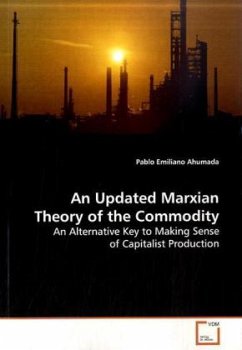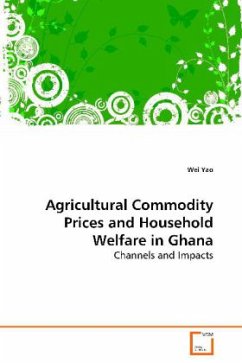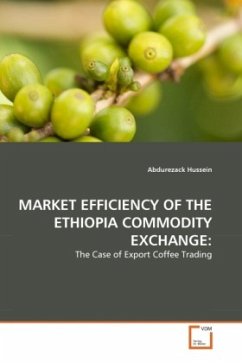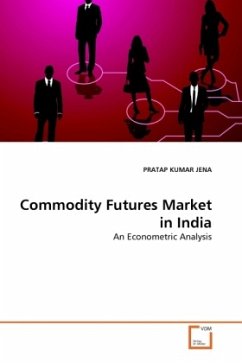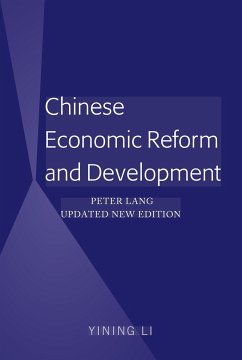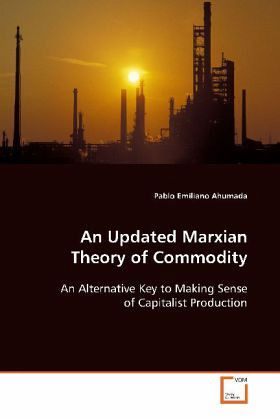
An Updated Marxian Theory of Commodity
An Alternative Key to Making Sense of Capitalist Production
Versandkostenfrei!
Versandfertig in 6-10 Tagen
32,99 €
inkl. MwSt.

PAYBACK Punkte
16 °P sammeln!
How does material production become sociallyrecognised in Capitalism? This is a fundamentalquestion for Economics, as material production takesplace privately and independently in a worldwidesystem. The present book shows that the process ofsocial recognition of material production and theprocess giving rise to money are one and the same. Itfurther highlights that they are only the materialmanifestation of the realisation of work carried outprivately and independently as part of the sociallabour. The theory of commodity outlined completesthe characterisation of commodity as a historicalmode of...
How does material production become socially
recognised in Capitalism? This is a fundamental
question for Economics, as material production takes
place privately and independently in a worldwide
system. The present book shows that the process of
social recognition of material production and the
process giving rise to money are one and the same. It
further highlights that they are only the material
manifestation of the realisation of work carried out
privately and independently as part of the social
labour. The theory of commodity outlined completes
the characterisation of commodity as a historical
mode of production and recovers Marx s fundamental
concept of the mercantile form of value. As a result,
it stands out that the mercantile form of value is
the indirect way in commodity production to allocate
the productive powers of society, Smith s invisible
hand. Furthermore, the book breaks the false
immediate identity between means of production and
capital, and that between money and capital. The
fallacy that the labour theory of value disregards
the inputs to production other than labour is thus
laid bare, as is the misconception that directly
identifies supply with production.
recognised in Capitalism? This is a fundamental
question for Economics, as material production takes
place privately and independently in a worldwide
system. The present book shows that the process of
social recognition of material production and the
process giving rise to money are one and the same. It
further highlights that they are only the material
manifestation of the realisation of work carried out
privately and independently as part of the social
labour. The theory of commodity outlined completes
the characterisation of commodity as a historical
mode of production and recovers Marx s fundamental
concept of the mercantile form of value. As a result,
it stands out that the mercantile form of value is
the indirect way in commodity production to allocate
the productive powers of society, Smith s invisible
hand. Furthermore, the book breaks the false
immediate identity between means of production and
capital, and that between money and capital. The
fallacy that the labour theory of value disregards
the inputs to production other than labour is thus
laid bare, as is the misconception that directly
identifies supply with production.



